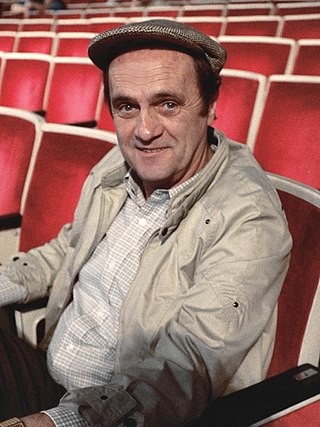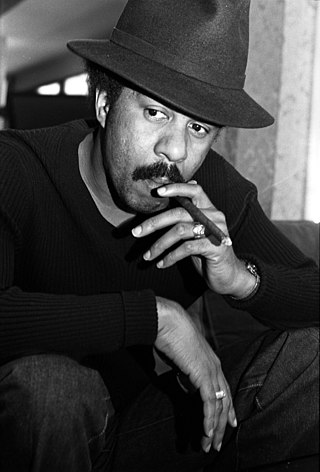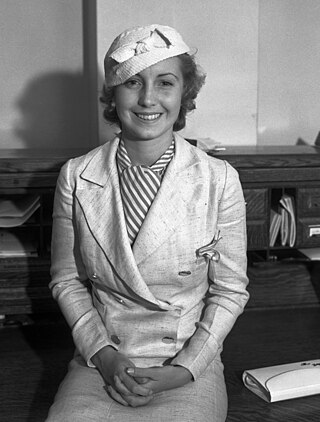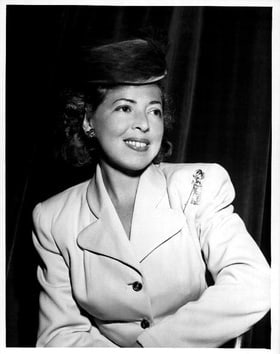
Albert Brooks is an American actor, director, and screenwriter. He received an Academy Award nomination for Best Supporting Actor for his performance in the 1987 comedy-drama film Broadcast News and was widely praised for his performance in the 2011 action drama film Drive. Brooks has also acted in films such as Taxi Driver (1976), Private Benjamin (1980), Unfaithfully Yours (1984), and My First Mister (2001). He has written, directed, and starred in several comedy films, such as Modern Romance (1981), Lost in America (1985), and Defending Your Life (1991). He is also the author of 2030: The Real Story of What Happens to America (2011).

Melvin James Brooks is an American actor, comedian, and filmmaker. With a career spanning over seven decades, he is known as a writer and director of a variety of successful broad farces and parodies. A recipient of numerous accolades, he is one of 21 entertainers to win the EGOT, which includes an Emmy Award, a Grammy Award, an Academy Award, and a Tony Award. He received a Kennedy Center Honor in 2009, a Hollywood Walk of Fame star in 2010, the AFI Life Achievement Award in 2013, a British Film Institute Fellowship in 2015, a National Medal of Arts in 2016, a BAFTA Fellowship in 2017, and the Honorary Academy Award in 2024.

George Robert Newhart was an American comedian and actor. Newhart was known for his deadpan and stammering delivery style. Beginning his career as a stand-up comedian, he transitioned his career to acting in television. He received numerous accolades, including three Grammy Awards, an Emmy Award, and a Golden Globe Award. He received the Mark Twain Prize for American Humor in 2002.

Alfred Hawthorne "Benny" Hill was an English comedian, actor, and scriptwriter. He is remembered for his television programme, The Benny Hill Show, an amalgam of slapstick, burlesque and double entendre in a format that included live comedy and filmed segments, with Hill at the focus of almost every segment.

Richard Franklin Lennox Thomas Pryor Sr. was an American stand-up comedian and actor. He reached a broad audience with his trenchant observations and storytelling style, and is widely regarded as one of the greatest and most important stand-up comedians of all time. Pryor won a Primetime Emmy Award and five Grammy Awards. He received the first Kennedy Center Mark Twain Prize for American Humor in 1998. He won the Writers Guild of America Award in 1974. He was listed at number one on Comedy Central's list of all-time greatest stand-up comedians. In 2017, Rolling Stone ranked him first on its list of the 50 best stand-up comics of all time.

Jackie Keith Whitley was an American country music singer and songwriter. During his career, he released only two albums but charted 12 singles on the Billboard country charts, and 7 more after his death.

The 2000 Year Old Man is a comedy sketch created by Carl Reiner and Mel Brooks in the 1950s and first publicly performed in the 1960s. Brooks plays a 2000-year-old man, interviewed by Reiner in a series of comedy routines that were turned into a collection of records and also performed on television.

Goodman Ace, born Goodman Aiskowitz, was an American humorist, radio writer and comedian, television writer, and magazine columnist.

Wonga Philip Harris was an American actor, bandleader, entertainer and singer. He was an orchestra leader and a pioneer in radio situation comedy, first with The Jack Benny Program, then in The Phil Harris-Alice Faye Show in which he co-starred with his wife, singer-actress Alice Faye, for eight years. Harris is also noted for his voice acting in animated films. As a voice actor, he played Baloo in The Jungle Book (1967), Thomas O'Malley in The Aristocats (1970), Little John in Robin Hood (1973), and Patou in Rock-a-Doodle (1991). As a singer, he recorded a number one novelty hit record, "The Thing" (1950).

Beatrice Benaderet was an American actress and comedienne. Born in New York City and raised in San Francisco, she began performing in Bay Area theatre and radio before embarking on a Hollywood career that spanned over three decades. Benaderet first specialized in voice-over work in the golden age of radio, appearing on numerous programs while working with comedians of the era such as Jack Benny, Burns and Allen, and Lucille Ball. Her expertise in dialect and characterization led to her becoming Warner Bros.' leading voice of female characters in their animated cartoons of the early 1940s through the mid-1950s.

Martha Tilton was an American popular singer during America's swing era and traditional pop period. She is best known for her 1939 recording of "And the Angels Sing" with Benny Goodman.

Don Wilson was an American announcer and actor in radio and television, with a Falstaffian vocal presence, remembered best as the rotund announcer and comic foil to the star of The Jack Benny Program.

Selma Diamond was a Canadian-born American comedian, actress, and radio and television writer, known for her high-range, raspy voice and her portrayal of Selma Hacker on the first two seasons of the NBC television comedy series Night Court. Diamond was also the main inspiration for the character of Sally Rogers on the series The Dick Van Dyke Show.

Harry Einstein, known professionally as Harry Parke and other pseudonyms, most commonly Parkyakarkus, was an American comedian, writer, and character actor. A specialist in Greek dialect comedy, he became famous as the Greek chef Nick Parkyakarkus on the Eddie Cantor and Al Jolson radio programs, and later on a program of his own. He appeared in eleven films from 1936 to 1945. He was also the father of comedians and actors Albert Brooks and Bob Einstein.

Sara Berner was an American actress. Known for her expertise in dialect and characterization, she began her career as a performer in vaudeville before becoming a voice actress for radio and animated shorts. She starred in her own radio show on NBC, Sara's Private Caper, and was best known as telephone operator Mabel Flapsaddle on The Jack Benny Program.

A comedy album is an audio recording of comedic material from a comedian or group of comedians, usually performed either live or in a studio. Comedy albums may feature skits, humorous songs, and/or live recording of stand-up comedy performances, but the most common type of comedy albums are stand up, and are often made in conjunction with a DVD with recorded video of a particular comedy show.

The Idaho Press of Nampa, Idaho is the second-oldest active newspaper in Idaho, first printed in December 1883. In its early years, the newspaper was often an instrument of political influence. One of the first owners and editors was Frank Steunenberg.

Lana Eleanor Cantrell AM is an Australian-American singer and entertainment lawyer. She was nominated for the Grammy Award for Best New Artist in the Grammy Awards of 1968.

The Spin is an album by the American jazz band Yellowjackets, released in 1989. The album title refers to the Earth's rotation. The band supported the album with a North American tour.

"Welcome to the LBJ Ranch!" is a political satire comedy album by Earle Doud and Alen Robin, released in November 1965 on Capitol Records. The vinyl album uses out-of-context recordings of political figures apparently responding to interview questions fabricated by the comedians. Television comedy writers Earle Doud and Alen Robin conduct some of the "interviews"; other interviewers are news announcers John Cameron Swayze and Westbrook Van Voorhis, with WPIX anchorman John St. Leger, all of whom were recorded speaking questions written by Doud and Robin. Audio tape was edited to bring together the comedy questions and the recordings of political people, with laugh track sound effects added by Bob Prescott.




















